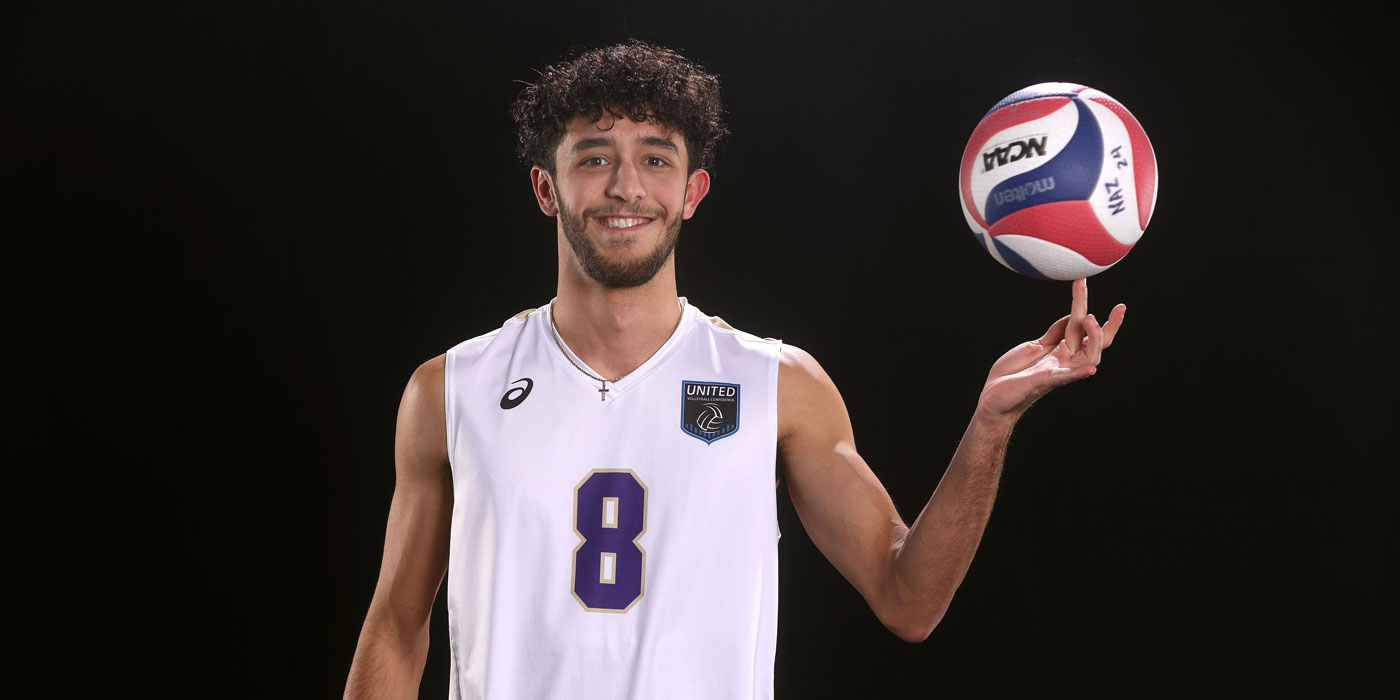A Winning Approach for the Whole Team — and the Whole Person
By Jonathan Everitt
The word "holistic" was likely less common in 1924. And in athletics? Unheard of.
A hundred years later, the Division III Nazareth Golden Flyers — a community of 25 teams — are all about a holistic approach to fitness, including body, mind, and meals. A research-based program designed to improve more than their performance on the field gives an advantage to individual student-athletes, to teams, and to Nazareth University overall.
Fitness science is a field unto itself: a profession gaining traction at Nazareth thanks to a unique partnership with UR Medicine. The program cultivates strength and wellness for the whole person with elements from sport-specific weight training to proper nutrition to mental health. And it’s all bundled together in a customized mobile app where players can track their individual progress throughout their season and stay connected to experts.
Until 2023, each Nazareth head coach sought out their own off-campus support, creating a fragmented landscape of strength and conditioning providers. Just three teams were part of the UR Medicine program before the Nazareth Athletics department reached an agreement to take full advantage of the program.
Today, everyone’s happily on board.
“We met with (Nazareth’s athletic director), Pete Bothner, and shared our offering with him,” says Conner Lorenzo, the program’s director of operations, who took the reins last year. “He wanted to take the next step. It’s been a booming success. Everybody at Naz is phenomenal to work with.”
The evolution of college athleticism
Anthony Caimano, of Liverpool, N.Y., played lacrosse at Nazareth from 1988 to 1989. In fact, the former midfielder scored the first goal in the program’s history, in the inaugural year of Nazareth lacrosse. (He later transferred to another college.)
Caimano — whose nephew of the same name is now a Nazareth student — recalls a less formal approach to training back in the day.
“We had scheduled trainings and reserved the weight room 2-3 days a week,” Caimano says. “There was a lot of running as a team to keep in shape. And we practiced every day. But there wasn’t anything nutrition-wise. I believe we had some trainers who worked with us on healthy eating, but nothing too sophisticated. Things are different now. I know some trainers now, and what they do is incredible. And nutrition is a big part of it.”
Current Nazareth student Anthony Caimano ’25, a visual communications and design major from Liverpool, N.Y., is in his third year on the men’s volleyball team and appreciates the Fitness Science partnership.

Anthony Caimano is in his third year on the men's volleyball team.
“It’s a great program,” says the younger Caimano. “It lets us improve beyond just trying to figure these things out on our own. So we improve as a team — a unit.”
Chris Baudo, women’s ice hockey head coach, came to Nazareth in 2017 to build a team that has since boasted over 100 wins and a winning percentage of over 0.800. He has witnessed the evolution of fitness for himself through the decades.
“Thirty years ago, when I was in college, everything was standardized to just the student-athlete,” Baudo says. “There wasn’t anything specific to your sport, such as lower-body strength. Now, as student-athletes build their strength, they get the advantage of science-backed, sport-specific guidance.”
Mental health matters
“Over the past decade this holistic approach to athletics has gained more importance in the minds of coaches and student-athletes,” says Pete Bothner, Nazareth’s athletic director. “The physical and mental preparation of the body are important. More college students are coming in having worked on strength and conditioning in high school.”
“With changes in the world, and what kids deal with — mental health wasn’t something we used to talk about,” adds Baudo. “These sports psychology sessions they’re having really help when someone is feeling overwhelmed. And that serves them in their classes, too.”
UR Medicine’s Craig Cypher, Psy.D., leads the mental health pillar of the program.
“Dr. Cypher focuses on the team’s mental health,” Bothner says. “He does a lot of work with student-athletes as teams, and then players who require individual assistance, they’re getting that as well.”
“Thirty years ago, we paid very little attention to the sports psychology element of athletics — things like handling adversity, pressure, anxiety,” Baudo says. “Now student-athletes have resources to navigate those emotions so they can perform at their peak.”

Alexis Jones, an ice hockey team member, shops for healthy foods.
Alexis Jones ’26, a dual major in biology and public health from Carnegie, Pa., plays on the women’s ice hockey team. She notes that the Fitness Science holistic approach has helped a lot, including by offering support that applies beyond hockey. For instance, the nutrition pillar is especially helpful in meeting the challenges of college life.
“The nutritionist has helped us find affordable, nutritious groceries if we live off campus,” Jones says. “So even if you don’t have the money to buy high-end organic foods, you can make your plate colorful and full, with all of the nutrients you need.”
Helping Naz athletics stand out
Although the concept of holistic health may be on trend, Lorenzo contends that there’s nothing out there as comprehensive as the Fitness Science that benefits Nazareth’s Golden Flyers.
“It’s gaining popularity, but you’d be hard-pressed to find a program that has all four pillars, including strength training, nutrition, sports psychology, and data analytics.”
The program gives Nazareth an edge in attracting student-athletes who are looking for a school that will bring out the best in them in every way.
“This is a differentiator for Naz,” Baudo says. “We’re appealing to the elite-level student-athlete because it covers the body, mind, and spirit. Young people understand the importance of that in their lives and within their sport, and student-athletes’ eyes light up when we talk about Fitness Science.”
Jonathan Everitt is a Rochester freelance writer.